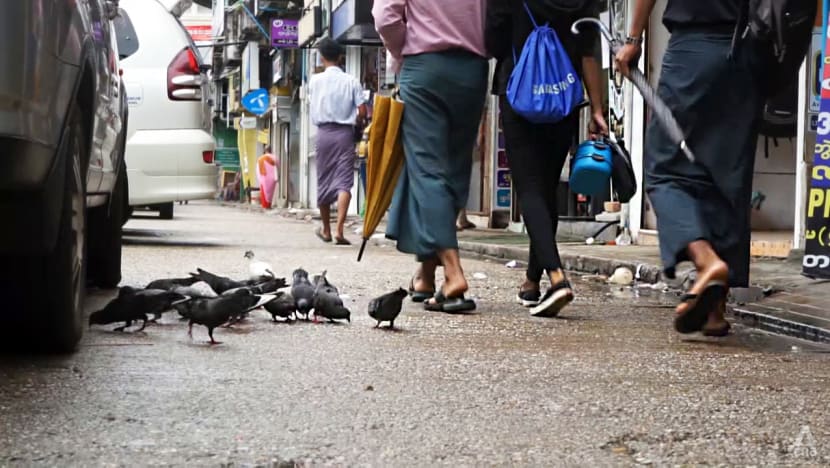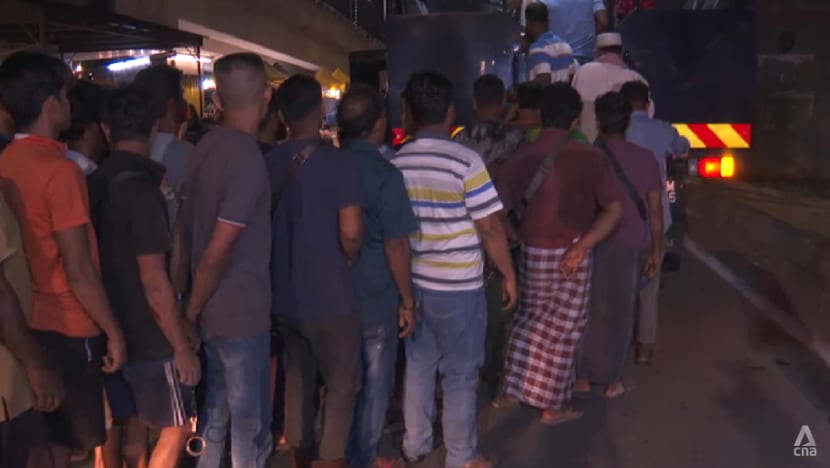Rights groups raise concerns over Malaysia’s move to clamp down on undocumented migrants
Many such migrants take on dirty, dangerous and demeaning jobs typically shunned by locals to support their families.


This audio is generated by an AI tool.
KUALA LUMPUR: Malaysian authorities have started clamping down on illegal settlements in and around Kuala Lumpur, in a bid to stop undocumented migrants from encroaching into the capital.
However, various human rights groups have raised concerns about the operation.
United Nations High Commissioner for Human Rights Volker Turk said Malaysia, which takes over the chairmanship of Association of Southeast Asian Nations (ASEAN) next year, can do more for the refugee community.
“Malaysia's leadership role as a future ASEAN chair will be very critical,” he added.
“It would be important for the government to also adopt a comprehensive refugee protection system, reinforcing the legal status of refugees, and enabling their access to employment, to formal education, to health and other essential services.”
PRESENCE HAS "CAUSED MUCH ANXIETY" FOR LOCALS
Malaysia is home to about 188,200 asylum seekers and refugees registered with the United Nations High Commission for Refugees (UNHCR), as of April this year.
About 87 per cent of them are from Myanmar, most of them ethnic Rohingyas fleeing persecution in Rakine state.
CNA tagged along a midnight joint operation by the immigration department, the police and the city council on the fringes of Kuala Lumpur on May 28. More than 100 officers, some armed with machine guns, cleared out an illegal settlement housing around 30 families, who are mostly ethnic Rohingyas.
Rohingya refugee Mohd Ali Amin was among those who were picked up by the enforcement team.
The father of three small children said he followed the city garbage truck every morning to clean the streets of Kuala Lumpur.
“I work on the garbage truck and get paid about RM900 (US$192),” he added.
For two decades, the 39-year-old and other refugees moved from one settlement to another. They paid nearly half what they earned to thugs just for a roof over their heads.
One 17-year-old ethnic Rohingya mother told CNA that she was born in Malaysia. She has a child who is barely a year old.
More than 52,200 refugees in Malaysia are under the age of 18. Malaysia is not a signatory to a United Nations convention on refugees, and is under no obligations to provide them healthcare and education.
While it is unclear where these Rohingyas were taken to, Malaysian Immigration Department director-general Ruslin Jusoh promised that the UNHCR would be contacted for those with identity cards issued by the agency.
"Their presence has caused much anxiety for the local community,” he said.
“They are living closer to the city centre now. Similar operations will follow in other areas to ensure that only foreigners with valid travel documents or work permits are allowed to stay in this country.”

TAKING ON DIRTY, DANGEROUS AND DEMEANING WORK
According to official statistics, documented migrant workers make up about 15 per cent of the country’s workforce.
Combined with undocumented workers, their numbers could be around 5.5 million based on unofficial estimates.
Many refugees take on dirty, dangerous, and demeaning jobs typically shunned by locals to support their families, because they are not allowed to work legally in Malaysia.
Human rights groups said Malaysia has no formal framework for dealing with refugees, which means they are easily exploited by those who employ them.
ASEAN Parliamentarians for Human Rights chairman Charles Santiago said: “For a very long time, there’s been a proposal put forward to the Ministry of Home Affairs and to the Government of Malaysia that the refugee community in Malaysia, which is sizeable, should be encouraged to work, should be trained, and provided the skills if necessary to get a job in Malaysia itself.”
He added that this would be “very helpful”, so Malaysia does not need to bring in labour from other countries such as Nepal or Bangladesh.
“But unfortunately, we are not tapping it and we treat them as if they are outcasts. In fact, the issue that they are paid RM900 for the job they do is against Malaysian law,” said Mr Santiago. In Malaysia, the minimum pay is fixed at RM1,500 per month.
He encouraged a mindset shift towards refugees to let them be integrated into the society.
“They're not taking our jobs," Mr Santiago said. "Clearly, Malaysians are not doing the dirty, difficult, dangerous jobs. Therefore, they are doing a service to us. We should not look at them as an enemy of society.”
ASEAN urgently needs to set up a humanitarian fund to support the Myanmar refugees scattered across Southeast Asia, he urged.
“Refugees have now moved into urban Bangkok, they have moved to Kuala Lumpur. These people have nowhere to go," he added.
“ASEAN (has to take) ownership of the problem of refugees in the region.”


















